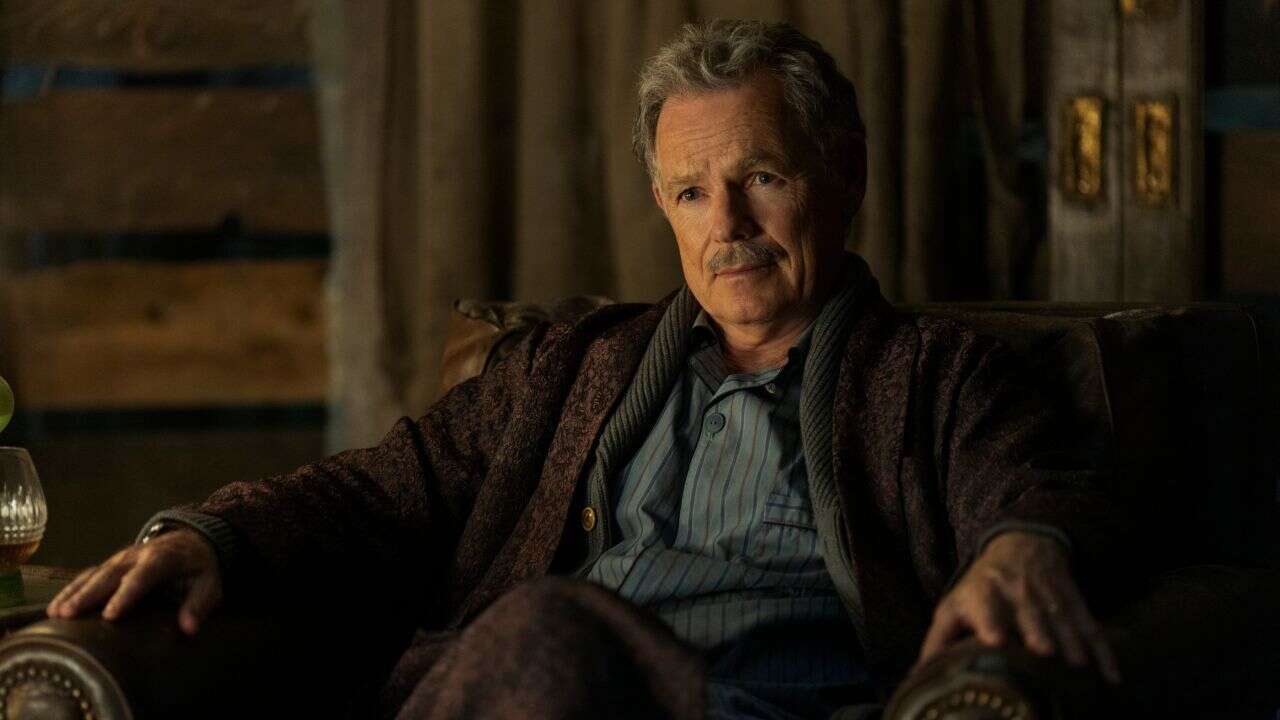[ad_1]

The Usher family is full of terrible people–you’ll be sure of that even before the first episode of the new Netflix series ends. Most of the deaths you’ll see throughout the show are satisfying on some level or another. Grisly as they may be, some of these characters absolutely have it coming. The show does a fabulous job of establishing a dark, gothic atmosphere without forcing us to watch a period piece about the 1840s, and how a once-famous and opulent family can fall into ruin as a result of greed and hubris.
The bodies pile up, though, and the series does come to an end. Still, while the finale has a lot to say, and a lot of it is right on the money, so much of the finale is ripped so directly from the headlines that by the time the credits roll, it plays as preachy and undercuts the show’s final impactful moments.
Warning: This article spoils the entirety of The Fall of the House of Usher on Netflix (though we leave out the really grisly stuff). Reader beware.
The Fall of the House of Usher isn’t about the deaths of the Usher family. Instead, it’s about the deaths caused by them. It’s quickly established that Roderick Usher and his sister Madeline are the powerful heads of Fortunato Pharmaceutical, the pharma firm responsible for Ligadone, an addictive painkiller in the vein of Vicodin and Oxycontin. This little pill is the foundation of the Usher family’s huge mansion and the easy lives each of Roderick’s children lived.
As the series progresses and each of Roderick’s children falls in gory and seemingly unconnected ways, we flash back to the earlier lives of Roderick and Madeline–first, how they grew up, and then later how they came to stand atop Fortunato for so long.
It’s not until the very end that we understand fully what went down. The Ushers made a deal with something supernatural. The devil, fate, death–the show isn’t interested in defining what the force actually is, and it’s not terribly important. But it made them a promise: They would live easy, wealthy lives until their time came, and then their bloodline would die with them. Roderick and Madeline were the “F*** Around” generation, and Roderick’s many children and lone grandchild are the “Find Out” generation. They’re not even being punished for how bad they were. Even if they had somehow turned out as saints, this would’ve happened due to the actions of their father and aunt.
This supernatural force, portrayed as a woman named Verna, appears before Madeline and Roderick, talking to them plainly about what they’ve done. Roderick stands in his boardroom one last time, having driven there in his pajamas. Verna spells out to Roderick what his lifetime of decisions have done to the world and bodies begin to rain from the sky, piling up on the ground.
Elsewhere, she sits across from Arthur Pym, the family’s longtime lawyer/muscle/one-man clean-up crew. Verna tells Pym about another one of her clients, who she says would be able to shoot someone in the middle of Fifth Avenue and get away with it. This is a direct reference to something Donald Trump said.
Closer to the end of the final episode, as Roderick and Madeline have a drink together in the basement of their childhood home, Madeline rails against modern capitalism, essentially blaming the system currently in place for allowing them to do what they did. Again, Madeline is, if not breaking the fourth wall, slamming against it like a gorilla being taunted by zoo goers.
These moments, where Verna and Madeline reference real-world events in this cheeky tone, tend to break the tension of the scenes they’re in. Instead of having us focus on the main characters, they shift our focus from the show to the real world. In the last episode especially, this happens repeatedly. Flanagan is speaking directly to viewers through Verna and Madeline, and it feels as if the show is just dropping any pretense of story here to speak to us about modern headline issues–the opioid epidemic, the exploitation inherent to modern capitalism, etc. Flanagan isn’t wrong about the messages being expressed in the finale. However, in doing so in such an explicit way, he distracts from his own work’s climax.
Instead of feeling like a proper finale, the last episode of The Fall of the House of Usher feels like a lecture, losing the drama built up over the preceding episodes. Given that this is Flanagan’s last Netflix series–he’s now developing projects for Prime Video–it’s a bit of a sour note to go out on, considering the incredible library of content he’s left at the streamer, from the Hill House franchise, to The Midnight Club, to even the Gerald’s Game film. It certainly doesn’t ruin the experience of The Fall of the House of Usher. It just takes the wind out of the sails of what would otherwise be an incredible final chapter of his Netflix story.
The products discussed here were independently chosen by our editors.
GameSpot may get a share of the revenue if you buy anything featured on our site.
[ad_2]
Source link





